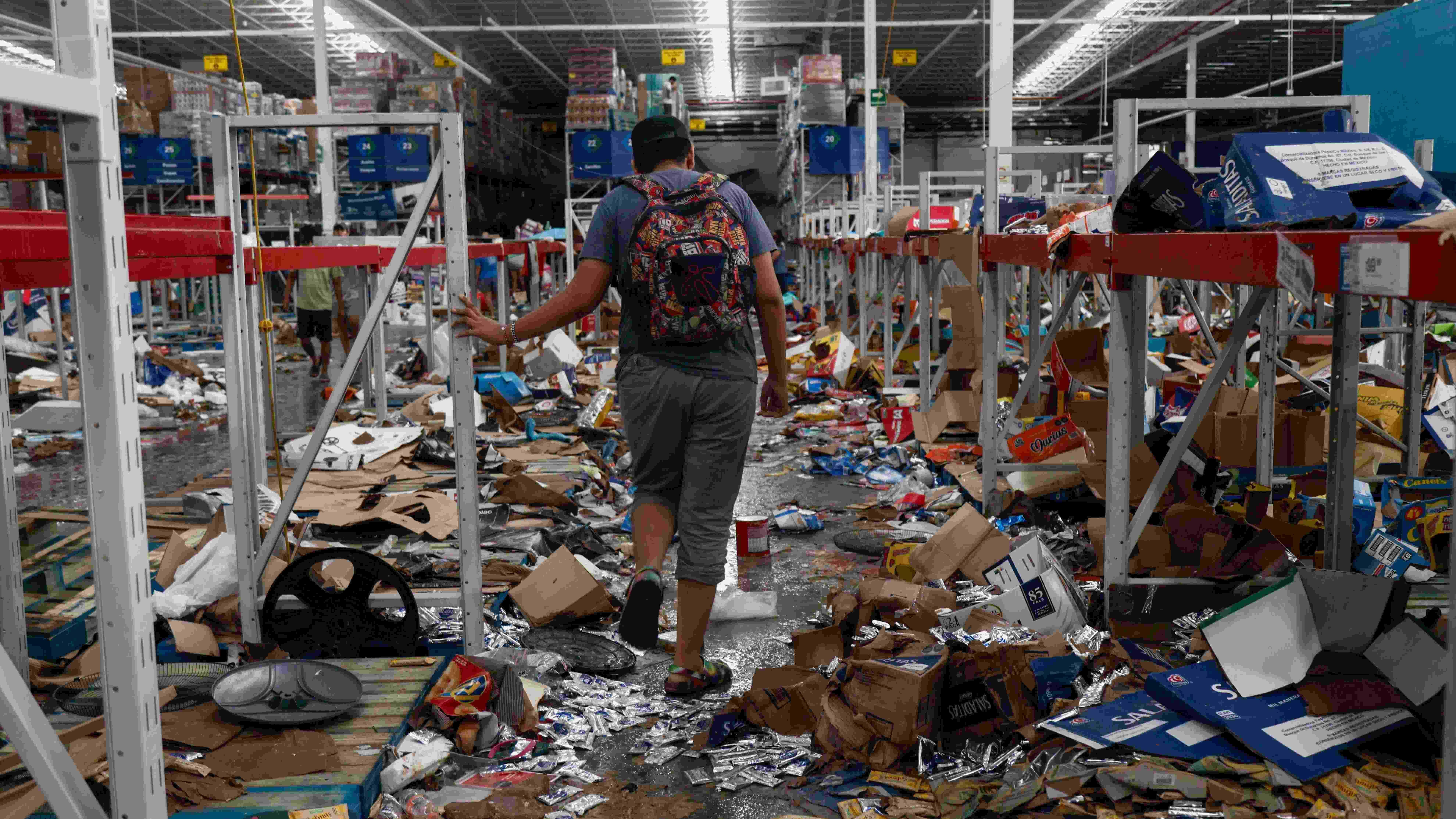Mexico hurricane victims grow desperate for food, aid amid slow response
ACAPULCO, Mexico

Survivors of the Category 5 storm that killed at least 27 people and devastated Mexico’s resort city of Acapulco are getting desperate amid a slow government response, worrying that the focus will remain on repairing infrastructure for the city’s economic engine of tourism instead of helping the neediest.
Despite hopes of incoming aid by many in Acapulco, the coastal city of 1 million once known for its beachside glamour was still in a state of complete chaos by the end of Thursday.
Entire walls of beachside high rises were ripped clean off. Hundreds of thousands of homes remained without electricity. People lacking even the most basic resources were emptying stores out of everything from food to toilet paper.
Miguel Angel Fong, president of the Mexican Hotel Association told the AP that 80 percent of the city’s hotels were damaged.
Dozens of desperate tourists, tired of waiting for buses out of the city, walked along the narrow sidewalks through the long car tunnel under the mountain dividing the port from the rest of the city. They pulled suitcases and some carried children.
The Pacific storm had strengthened with shocking swiftness before slamming into the coast early Wednesday, and the Mexican government deployed around 10,000 troops to deal with the aftermath. But equipment to move tons of mud and fallen trees from the streets was slow in arriving.
Flora Contreras Santos, a housewife from a poor neighborhood on the outskirts of the city, sought help in looking for a 3-year-old girl who was swept away from her mother in a mudslide. She went from soldier to soldier trying to interest any one of them in the tragedy that occurred on her street at the height of the storm.
“The mountain came down on them. The mud took her from the mother’s arms,” Contreras said. “We need help, the mother is in bad shape and we can’t find the girl.”
Even as army bulldozers began clearing knee-deep mud from Acapulco’s main boulevards, Contreras’ pleas did not appear to move any of the soldiers to action.
President Andrés Manuel López Obrador went by road Wednesday after the hurricane hit the iconic city on Mexico ’s Pacific coast. At least four people remained missing. It was unclear if the 3-year-old girl was counted among them.
The president said Otis had toppled every power-line pole in the zone where it hit on Wednesday, leaving much of the city of without electricity. Otis turned from mild to monster in record time, and scientists were struggling to figure out how — and why they didn’t see it coming.
Acapulco’s municipal water system was down and around half a million homes lost power. López Obrador said that restoring power was a top priority, but by Thursday evening there were still 250,000 homes and businesses with no electricity.
Brown floodwaters extended for miles in some areas. Many residents were taking basic items from stores to survive. Others left with pricier goods, in widespread rampages through the area’s stores.
As cell phone signals began to return to some parts of the city, residents organized themselves with the help of friends and relatives living in other parts of Mexico and the United States. They joined together by neighborhood using online messaging platforms like WhatsApp. On Thursday there were some 1,000 people in 40 chats, which only continued to grow in number throughout the day.
They shared photos of flooded neighborhoods and tips for finding cell phone signals, while asking for information about loved ones that they had not heard from. Others share photos of papers full of names of survivors taking refuge in shelters, some with notes reading “Lupita, we are okay. I will call you when we have signal.”
Juan Pablo López, 26, had been talking to his wife when their call was cut off early Wednesday as Otis made landfall. She had returned to Acapulco to be with her family and give birth to their son a month ago. Lopez was at home in Cancun.
“I’m very worried for my newborn son,” he said.
With no information coming in Wednesday, he created an online chat with friends and family from Guerrero state, where Acapulco is the largest city. He also invited friends who had emigrated to the U.S. and asked them to add their local contacts.
“We started to cross-reference information, to share what we found, almost like a WhatApp newspaper,” Lopez said.
By Thursday afternoon, however, he still had not heard word about his wife and son.
The surreal was commonplace in the storm-wrecked city, as residents emptied the area’s stores of goods.
















